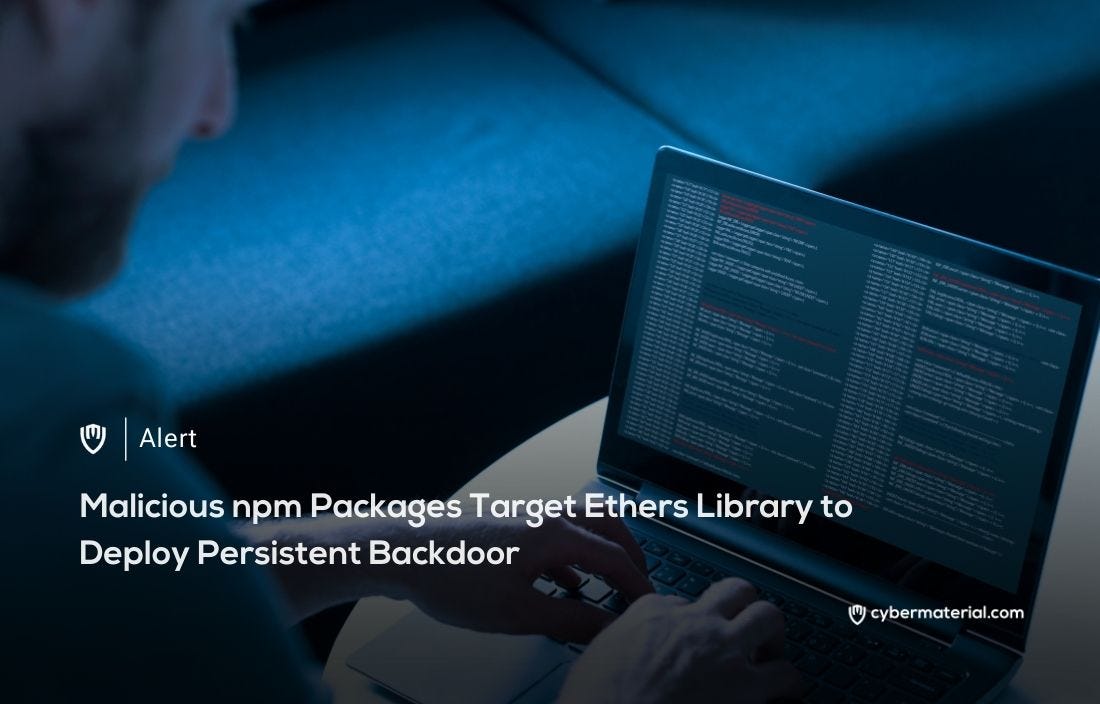
Cybersecurity researchers have uncovered two malicious npm packages, ethers-provider2 and ethers-providerz, designed to infect locally installed packages. The first package, downloaded 73 times since…

Cybersecurity researchers have uncovered two malicious npm packages, ethers-provider2 and ethers-providerz, designed to infect locally installed packages. The first package, downloaded 73 times since…